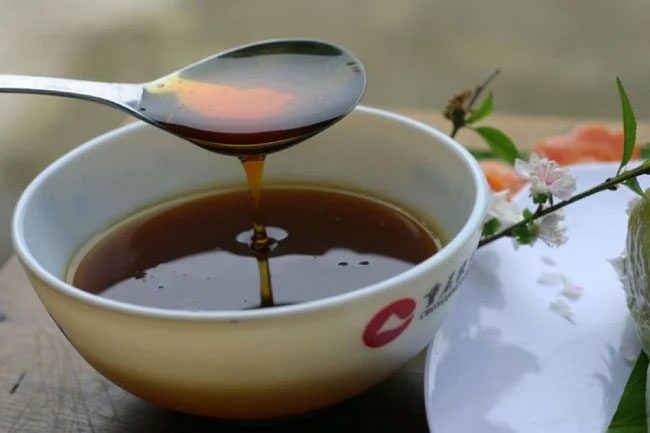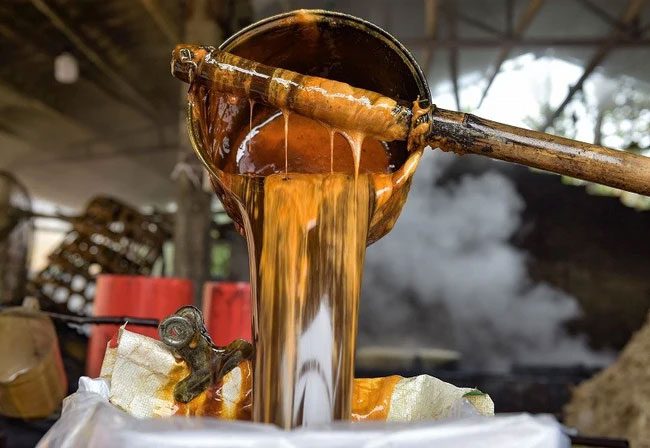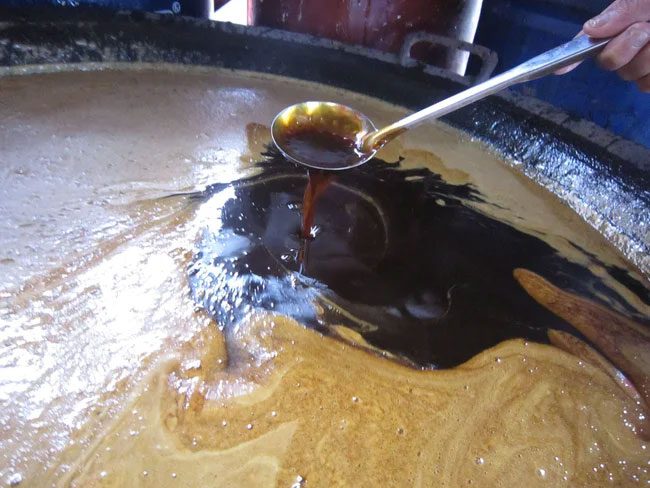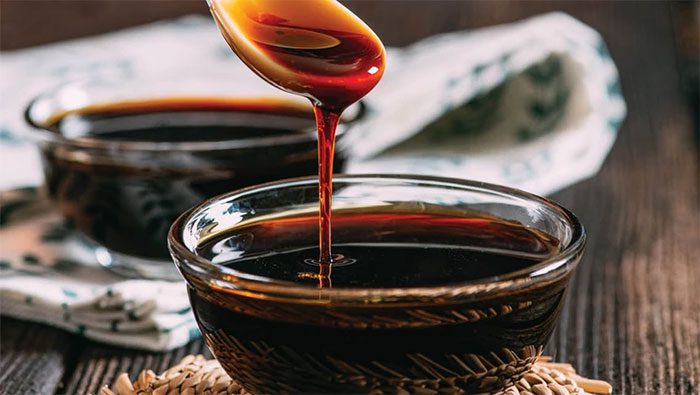In some places, people often use this substance to sweeten and enhance health, and experts consider it one of the most nutritious foods.
Benefits of Molasses That Few People Know
The answer lies in molasses – a sweet, viscous liquid similar to honey. It is the syrupy residue left after extracting sugar from raw sugarcane, which is why many people refer to molasses as “the essence of sugarcane.” Molasses is rich in essential vitamins and minerals, providing numerous health benefits.
According to Kim Chin, a nutrition expert at California Polytechnic State University, molasses contains vitamin B, calcium, and magnesium, which help the body combat stress. A study published in the journal Psychotherapy and Psychosomatics in 2004 showed that it contains vitamin B6, which helps regulate mood and alleviate pain, fatigue, and depression.

Molasses is an excellent sweetener, but not everyone knows it.
Nowadays, more and more people are becoming aware of the benefits of molasses as an alternative to refined sugar. Refined sugar loses many nutrients and is not good for skin and weight in the long run. In contrast, molasses is mildly sweet and packed with nutrients, helping to improve health and skin.
Additionally, molasses boasts many other fantastic benefits as follows:
1. Enhances Bone Health
Kim Chin states that molasses is a rich source of calcium, promoting bone growth and improving bone density. It also contains minerals such as iron, selenium, and copper, all of which contribute to nourishing and maintaining healthy bones over time.

Molasses is carefully cooked and extracted, making it a complex product.
2. Prevents Cancer
A 2009 study published in the Journal of the American Diabetes Association indicated that molasses contains many antioxidants that prevent certain types of cellular damage. These antioxidants play a significant role in inhibiting malignant cells and limiting the effects of free radicals, thus helping to prevent cancer.
3. Boosts Skin Health
Molasses contains lactic acid, produced by bacteria that play an essential role in carbohydrate metabolism. Experts consider this a natural treatment for acne and other skin conditions. It also helps enhance wound healing and regenerate skin tissues.

Molasses is often used in dishes instead of refined sugar.
4. Improves Hormonal Balance and Fights Aging
Some minerals in molasses, such as calcium and magnesium, can prevent blood clotting and soothe the uterine walls in women. This helps reduce menstrual cramps and maintain uterine health. The iron in molasses also minimizes the risk of anemia while effectively improving hormonal balance.
5. Improves Sleep Quality
Molasses contains calcium, which aids the brain in producing the amino acid tryptophan, increasing the production of melatonin – a substance that helps you fall asleep more easily. Additionally, molasses is rich in magnesium, which acts as a natural sedative, reducing sleep disturbances and helping you sleep soundly through the night.

Using molasses correctly can significantly improve sleep.
6. Prevents Anemia
Black molasses is a plant-based food very rich in iron. Just 15ml of molasses provides 20% of your daily iron needs. Therefore, incorporating molasses into your diet can help prevent or improve iron deficiency anemia.
If left untreated, iron deficiency anemia can lead to conditions such as fatigue, weakness, or shortness of breath.
Molasses is often recommended to be consumed with other plant-based iron sources, such as leafy greens, soy products, and legumes.
7. Alleviates Constipation in Children
Black molasses can help improve constipation in children due to its polysaccharides – a type of carbohydrate in black molasses that can act as fiber, improving stool consistency and alleviating decreased bowel motility. This can lead to increased bowel movement frequency and reduce abdominal pain in constipated children.
Moreover, low potassium levels often lead to constipation, so the high potassium content in molasses can regulate muscle contractions to promote digestion.
8. Prevents Chronic Diseases
Molasses is a rich source of antioxidants. Antioxidants are compounds that protect the body from free radicals. Free radicals are molecules that can damage cells, leading to oxidative stress and various related diseases when present in large quantities.
Additionally, molasses is particularly rich in polyphenol antioxidants. Studies have shown that consuming polyphenols can help prevent, delay, or reduce the impact of chronic diseases, including heart disease, diabetes, obesity, and cancer.

Molasses helps replenish iron and prevents premature graying of hair. (Photo: Internet).
9. Good for Hair
The high iron content in molasses can promote healthy hair. Although hair loss is often associated with deficiencies in vitamins and minerals rather than specifically iron deficiency, research shows that iron deficiency is common among women experiencing hair loss.
Furthermore, iron deficiency can cause hair to turn gray prematurely in childhood and early adulthood. Therefore, supplementing this mineral can improve the condition of early graying hair.
How to Use Molasses
Many families use molasses as a sweetener in cooking. It is commonly used in savory dishes like braised fish and meat or as a substitute for sugar in beverages. Molasses is also used to make dipping sauces or sweet soups, as it tastes better than regular sugar.
Kim Chin advises that molasses is healthier than refined sugar, but it should not be overconsumed. Excessive intake can cause diarrhea and harm those with diabetes. People with irritable bowel syndrome or other digestive discomforts should also avoid molasses.

While molasses is beneficial, it must be used correctly to ensure health.
In addition to the many health benefits mentioned above, molasses has many other wonderful uses. However, if any unusual symptoms occur while using molasses, you should take the patient to the nearest hospital for timely emergency care.

















































